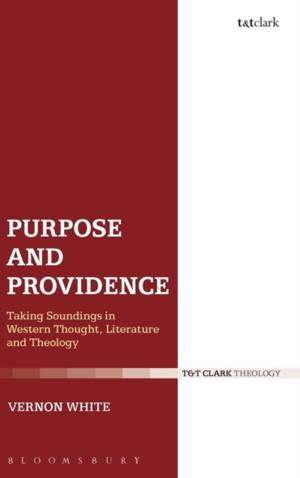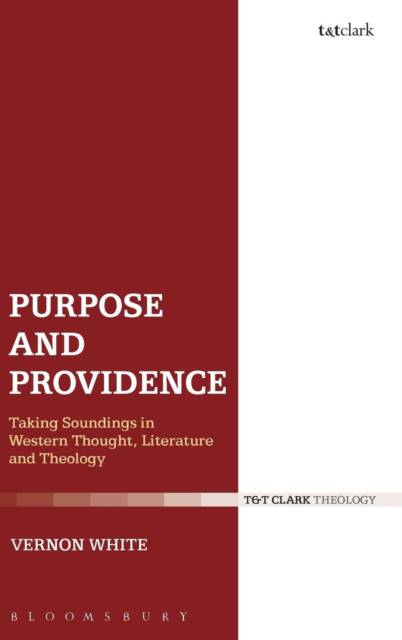
Bedankt voor het vertrouwen het afgelopen jaar! Om jou te bedanken bieden we GRATIS verzending (in België) aan op alles gedurende de hele maand januari.
- Afhalen na 1 uur in een winkel met voorraad
- In januari gratis thuislevering in België
- Ruim aanbod met 7 miljoen producten
Bedankt voor het vertrouwen het afgelopen jaar! Om jou te bedanken bieden we GRATIS verzending (in België) aan op alles gedurende de hele maand januari.
- Afhalen na 1 uur in een winkel met voorraad
- In januari gratis thuislevering in België
- Ruim aanbod met 7 miljoen producten
Zoeken
Purpose and Providence
Taking Soundings in Western Thought, Literature and Theology
Vernon White
Hardcover | Engels
€ 296,95
+ 593 punten
Uitvoering
Omschrijving
Do our lives have purpose? Despite the rise of secularism, we are still confronted by a sense of meaning and direction in the events of history and our own lives - something which is beyond us and not our own creation/imagination. Using the novels of Thomas Hardy and Julian Barnes, Vernon White tracks this belief in intellectual history and tests its resilience in modern literature. Both novelists portray modern and late-modern scenarios where, although the idea of an objective purpose has been deconstructed, it still haunts the protagonists.
Using literature as the starting point, the discussion moves on to an exploration of this belief in its theological form, through the doctrine of providence. White critically reviews the classic canon of providence and its pressure points - the problems in divine causality, the metaphysical assumptions required in its acceptance, and the contradictions to be found between God's purpose and the metanarratives of history. Using Barth and Frei, White suggests new ways of re-imagining divine providence to take account of these issues. The credibility of this re-defined providence is then tested against scripture, experience and praxis, with the result being an understanding of providence that does not rely on empirical progress.
Using literature as the starting point, the discussion moves on to an exploration of this belief in its theological form, through the doctrine of providence. White critically reviews the classic canon of providence and its pressure points - the problems in divine causality, the metaphysical assumptions required in its acceptance, and the contradictions to be found between God's purpose and the metanarratives of history. Using Barth and Frei, White suggests new ways of re-imagining divine providence to take account of these issues. The credibility of this re-defined providence is then tested against scripture, experience and praxis, with the result being an understanding of providence that does not rely on empirical progress.
Specificaties
Betrokkenen
- Auteur(s):
- Uitgeverij:
Inhoud
- Aantal bladzijden:
- 184
- Taal:
- Engels
Eigenschappen
- Productcode (EAN):
- 9780567663429
- Verschijningsdatum:
- 22/10/2015
- Uitvoering:
- Hardcover
- Formaat:
- Genaaid
- Afmetingen:
- 156 mm x 234 mm
- Gewicht:
- 439 g

Alleen bij Standaard Boekhandel
+ 593 punten op je klantenkaart van Standaard Boekhandel
Beoordelingen
We publiceren alleen reviews die voldoen aan de voorwaarden voor reviews. Bekijk onze voorwaarden voor reviews.









